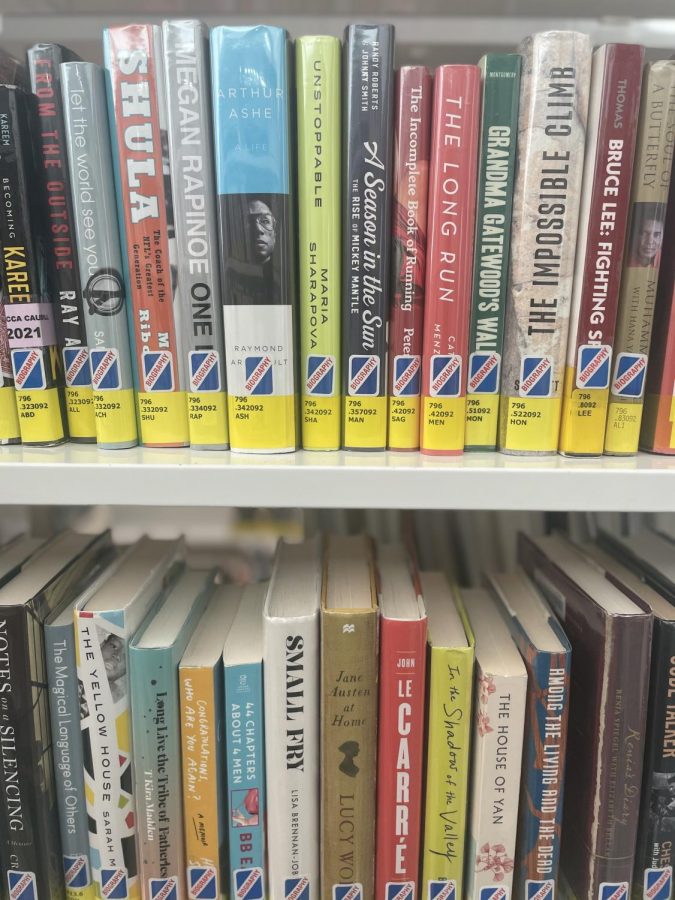Paper books with unwritten future
Libraries offer endless options of books to choose from, but as advancements in technology continue to have a grip on the world these shelves may be empty
May 13, 2021
“ I love books. I adore everything about them. I love the feel of the pages on my fingertips. They are light enough to carry, yet so heavy with the worlds idea. I love the sound of the pages flicking against my fingers. Print against fingerprints. Books make people quiet, yet they are so loud.”
- Nnedi Okorafor in The Book of Phoenix
There is something about a brand-new book that people just really adore. Whether it is the flipping sound the pages make with each turn or the appreciation of great writing, It’s often something that is timeless. As E-books have become increasingly popular, the future of paper books is uncertain.
“I think there will always be paper books,” English teacher Yonika Willis said. But, I do imagine that there will be popularity in electronic books as generations that are used to electronics begin to get older.”
Paper books may be fading out to younger generations, though, in the future they may not necessarily fade out but will not be as popular with the younger generation. Simply because of the convenience of them as well as portability.
“Digital books will become more popular because you can download the book in a matter of minutes,” senior Don Baer said. On the other hand, paper books can take days to deliver.”
Digital books have a feature that allows readers to highlight text, look up words and research influential people that add meaning or excitement to a story. With physical books, this option is not available If a word is unknown in a paper book, time must be set aside for definitions and words to be looked up.
“ I like that once you highlight things in a digital book it will always be there,” junior Charlie Huerte said. I also love the feature where you can copy and paste the text, so if you need to pull a quote for an assignment it can easily be pasted into a paper.”
Despite the technological advancements of digital and audio books, paper books may never fade out simply because of the timeliness of them. They have been around for centuries and some people just like to have that tangible feeling in their hands.
“Physical books are more of a sensory experience with the feel and smell of the book,” English teacher Julie Fornelli said. For many, this can add to the experience of reading, although overall, as an English teacher, I want to encourage reading, so if people find reading digitally to be more convenient or enjoyable, then read on.”
When looking at the environmental aspect of paper books, they are not so good for the environment because the production of paper books means more trees cut down. Digital books in terms of the environment are a good alternative to saving trees.
“I would say that digital books would deliver a smaller footprint,” environmental science Teacher Jason Kelner said. Paper accounts for deforestation, climate change factors, and other environmental issues, along with the aspect of transportation.”
It is possible for the production of paper books to adhere to certain environmental and governmental guidelines. To do so, though, large publishing companies may have to make changes to the company so that it protects the environment but at the same time turns a profit.
“A lot of people I know read physical copies of books,” algebra II teacher Rebecca Welcome said. I think that bookstores will always be open, but I think that we might have to slow production.”
Changes to the industry may be a long-term issue within the corporate sector, but humans are adaptable. Generations to come need to have access to the knowledge and inspiration that books offer. Whatever format people chose, books will forever remain a place for the mind to wander to unimaginable places.
“I think it is possible that physical books will become far rarer,” Fornelli said. “But, I think that there will be those who will hold onto the value of physical books. In fact, there has been research completed about getting books into the hands of infants and toddlers. This encourages the importance and enjoyment of reading at a young age.”







